Flight Buzz
United Airlines’ New Flight Rebooking System Sparks Outrage: Travelers Criticize Lack of Support After Delayed Flights and Frustrating Online-only Solutions
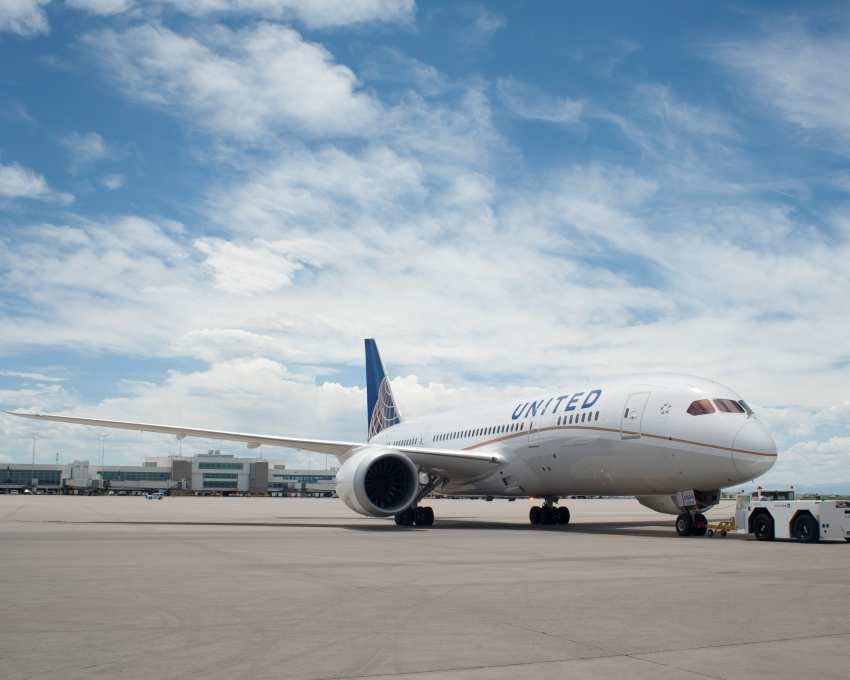
Wednesday, August 6, 2025
In recent years, United Airlines has prided itself on delivering improved customer service, offering travelers an experience that exceeded its competitors. However, this reputation is now being challenged as the airline faces a backlash following a particularly frustrating customer experience. The controversy began after a flight delay from Quebec City, which led to the traveler and their family missing their connecting flight at Newark International Airport.
The airline’s new rebooking system, which had been designed to streamline the customer service process, is now being slammed for leaving travelers stranded and unsupported. While the shift to digital-first solutions had promised efficiency, the reality has been far less favorable. The incident has sparked concerns about the growing reliance on technology at the expense of personalized service and human interaction—an issue that could have far-reaching consequences for the airline industry, particularly in how travelers experience disruptions.
The Shift from Personalized to Impersonal Customer Service
Traditionally, United Airlines was known for its quick, hands-on assistance during delays and flight disruptions. Travelers could typically expect immediate help from customer service agents, who would work swiftly to find a solution. Unfortunately, this once highly praised service model has been replaced by a digital-only system that is leaving passengers frustrated and dissatisfied.
In the Quebec City to Newark incident, the traveler’s family faced a significant delay during customs, causing them to miss their connecting flight by mere minutes. At what should have been a critical moment for customer service, the family was instead given a QR code and directed to a slow, impersonal rebooking website. They were left with no clear instructions on what to do next and no immediate human contact to resolve their situation.
While digital rebooking systems are often seen as more efficient and cost-effective for airlines, they can also alienate travelers when problems arise. In the case of United’s new system, the lack of real-time, human support made the rebooking process longer and more frustrating, with travelers experiencing significant delays in communication and receiving only generic responses from the airline.
Digital-Only Rebooking: A Growing Trend with Significant Consequences
The trend toward using technology to handle customer service is becoming more widespread across the airline industry. However, as airlines like United embrace this model, they risk alienating travelers who expect a more personalized experience. The desire for human interaction during stressful travel situations is not just a luxury; it’s a crucial aspect of maintaining trust and loyalty.
Digital-only rebooking systems, like the one used by United, are meant to streamline the process, saving time and costs for the airline. In theory, they provide passengers with the ability to manage their own rebooking without waiting in line or speaking to a customer service representative. However, in practice, tech-heavy solutions often lead to long waits, confusion, and a general sense of being abandoned in times of crisis.
In this case, after missing their connecting flight, the family was left to deal with a slow and unresponsive website. Instead of receiving immediate rebooking options or a clear path forward, they were forced to navigate a cumbersome process with minimal guidance. This lack of support is especially problematic in high-stress situations, where travelers need quick assistance to avoid further disruption to their plans.
Effect on the Travel and Tourism Industry: What This Means for Airlines and Customers
As travel disruptions continue to affect passengers worldwide, airlines need to reconsider how they handle customer service during these times. The increasing reliance on automated systems may help airlines cut costs and reduce the need for staff, but it also comes at the expense of personalized service. Customers expect more than just a quick solution to a problem—they expect empathy, understanding, and, most importantly, human interaction.
The backlash United Airlines is facing over its rebooking system highlights a broader issue within the travel and tourism industry. As travelers become more accustomed to using digital tools, they expect airlines to balance technology with a personal touch. Airlines that fail to provide a balance between the two risk losing customer loyalty, which could have long-term repercussions on the industry’s growth.
The trust that travelers place in airlines is not easily regained once broken. Delayed flights and missed connections are common occurrences in the travel industry, but the manner in which they are handled can make or break a customer’s experience. United Airlines, with its previously strong reputation for customer service, may now find itself in a difficult position as it grapples with the fallout from this rebooking debacle.
A Case for Balanced Innovation: Can Airlines Improve the Tech-Human Experience?
While technology is undeniably an essential part of the modern travel experience, the human element remains crucial, especially when things go wrong. The key takeaway from United Airlines’ recent incident is that airlines must find a way to balance innovation with the needs of their passengers. Digital tools should enhance, not replace, the human connection that customers expect when dealing with disruptions.
To avoid further damage to their reputation, United Airlines and other airlines adopting digital-only systems should consider implementing hybrid models where technology can assist customers, but human agents are readily available to step in when needed. For example, automated systems could provide travelers with initial options, but if a problem arises, passengers should be able to quickly access real-time support from a representative who can provide immediate assistance.
Moreover, airlines should focus on improving their online interfaces to make them more intuitive, ensuring that travelers can find solutions quickly without feeling lost or frustrated. A seamless blend of technology and human service would likely provide the best of both worlds—offering the convenience of automation while maintaining the personal touch that passengers need during times of uncertainty.
The Broader Implications: What This Means for the Future of Travel
United Airlines’ new rebooking system fiasco may be an isolated incident for now, but it reflects a larger trend in the travel industry. As airlines look to cut costs and streamline operations, many are moving toward digital-first models. While these systems have their benefits, they must be implemented with care to avoid alienating customers who still value the personal touch that has been a hallmark of quality service for years.
As travel and tourism continue to evolve, the industry needs to strike a balance between cutting-edge technology and personalized customer service. Innovations in tech should aim to make the travel experience easier and more convenient but must not replace the empathetic, human connections that passengers expect. The success of any airline or travel company in the future will depend on its ability to provide a seamless blend of both, ensuring that customers feel supported and valued at every step of their journey.
Conclusion: Restoring Trust Through Customer-Centric Solutions
The experience shared by a United Airlines passenger highlights a growing concern in the travel industry: technology is not a substitute for human care. While digital solutions can improve certain aspects of the travel process, they should never replace the human element that is essential in maintaining trust and customer satisfaction. In this case, United Airlines must recognize that a seamless customer experience requires both innovative tech and personal support, especially in times of disruption.
To rebuild customer loyalty and trust, airlines must carefully consider how they incorporate technology into their customer service strategies. A balance between automation and real-time assistance is key to ensuring that passengers feel supported—not just processed—when things go wrong. By prioritizing a customer-centric approach that integrates the best of both worlds, the travel industry can avoid further backlash and ensure that passengers’ needs are met with both efficiency and empathy.
Image Custody: United Airlines
Flight Buzz
Alaska Airlines unveils new plane livery and Seattle flights to London and Reykjavik
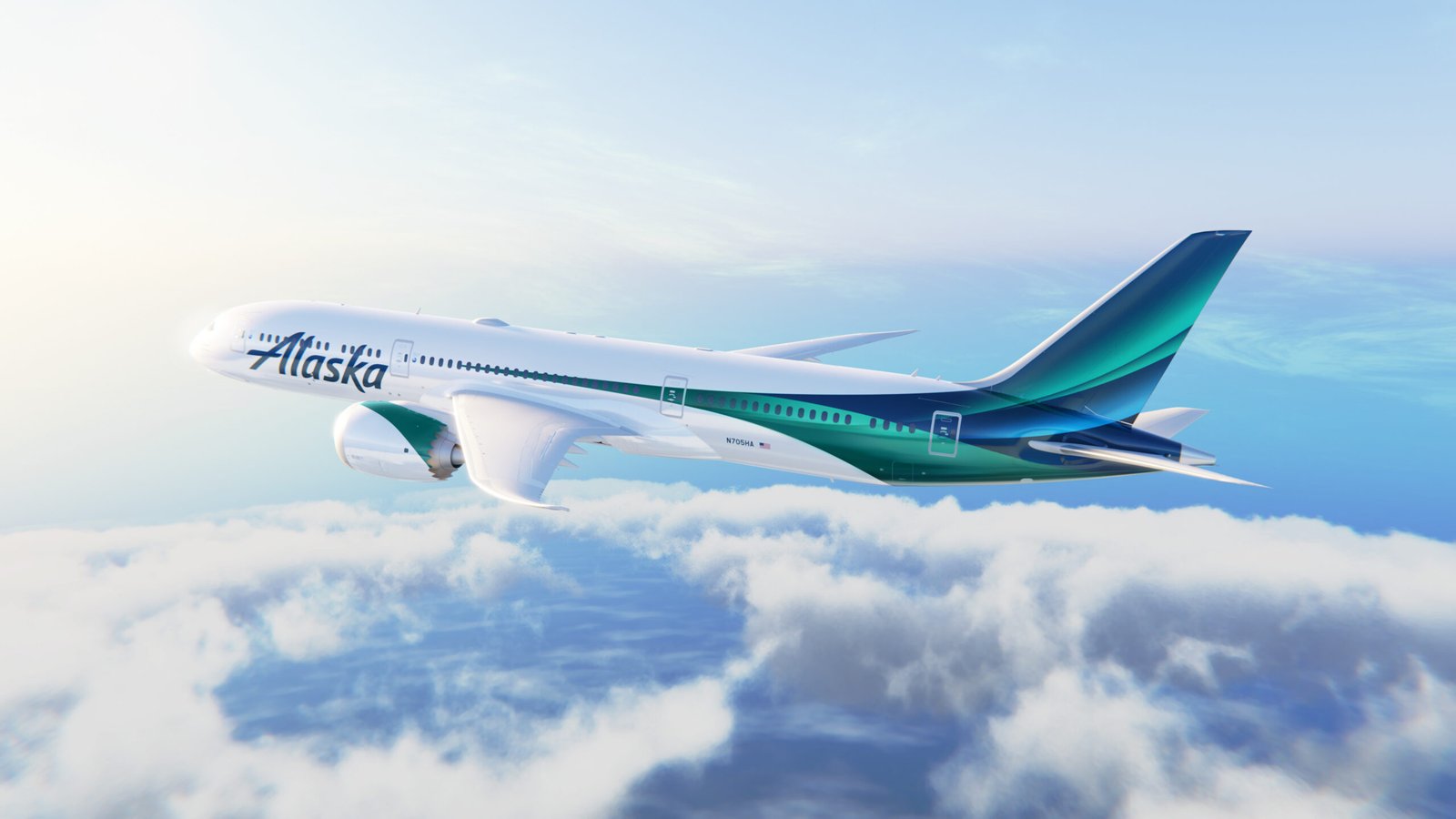
Alaska Airlines is expanding its international network by opening two new transatlantic routes from Seattle-Tacoma International Airport to London Heathrow Airport and Reykjavik, Iceland. Flights are scheduled to begin in spring 2026, marking a significant step in the airline’s strategy to become a global carrier.
The daily flight to London Heathrow Airport will be operated year-round on Alaska Airlines’ new Boeing 787-9 Dreamliner, which offers premium class amenities and 34 lie-flat suites in Business Class. The new seasonal route to Reykjavik will be operated daily during the summer months on Boeing 737-8 MAX aircraft.
“With these bold moves, we are accelerating our vision to connect our guests to the world. We are seizing this moment to redefine the international experience and level up. And we’re doing it with the same relentless focus on safety, care and performance that’s always defined us. I’m so proud of how our people continue to step up and deliver as we push ahead on these initiatives, with even more to come,” said Ben Minicucci, Alaska Airlines CEO.
The route launch coincides with the rollout of Alaska’s new global livery, which makes its debut only on the airline’s growing fleet of 787 Dreamliners. Inspired by the energy and spirit of the aurora borealis, the new design incorporates broad horizontal stripes of rich emerald green and deep midnight blue along the fuselage – an homage to Alaska’s natural environment and outstanding heritage, and a contemporary tribute to the iconic liveries from the 1970s and 1980s that link the airline’s past with its future. The aura’s flowing lines, visible in current premium cabins and main livery, give the design lightness, movement, and fluidity.
“Our new 787 exterior embodies Alaska’s transition to a global airline with beauty, grace and a nod to our heritage. As we significantly expand to new destinations around the globe, we’re eager for more and more travelers to recognize our new livery as being Alaska Airlines and appreciate the outstanding service we’ve long been known for,” commented Andrew Harrison, Alaska Airlines Chief Commercial Officer.
The carrier currently operates four 787-9s and plans to add up to 17 more aircraft by the end of the decade. A new pilot base in Seattle will support long-haul operations such as previously announced routes to Tokyo-Narita (January 2026), Rome (spring 2026), and a new nonstop service to Seoul-Incheon scheduled to launch on 12 September this year.
These steps will allow Alaska to compete more effectively in key transatlantic markets, as London remains the busiest international destination from Seattle, with more than 400 passengers flying between the two cities each day for both business and leisure, and Reykjavik is a bucket-list destination for adventure and outdoor lovers, also serving as a gateway to mainland Europe.
By 2030, Alaska aims to serve at least 12 international destinations from Seattle. The airline will also leverage partnerships with British Airways and American Airlines to provide broader connectivity through Oneworld Alliance networks.
Tickets for both routes are expected to go on sale later this fall. The London service will operate year-round, while flights to Reykjavik will run from mid-May through early September.
As Alaska Airlines looks to broaden its international presence, the new offerings serve part of a larger commitment to better customer service, premium travel experiences, and expanded global access from the West Coast.
Flight Buzz
Travel To Spain Is On Edge! Ryanair Flights Suffering Massive Delays, How Strike Disrupts Madrid, Alicante, Seville, and Key Airports You Need To Know
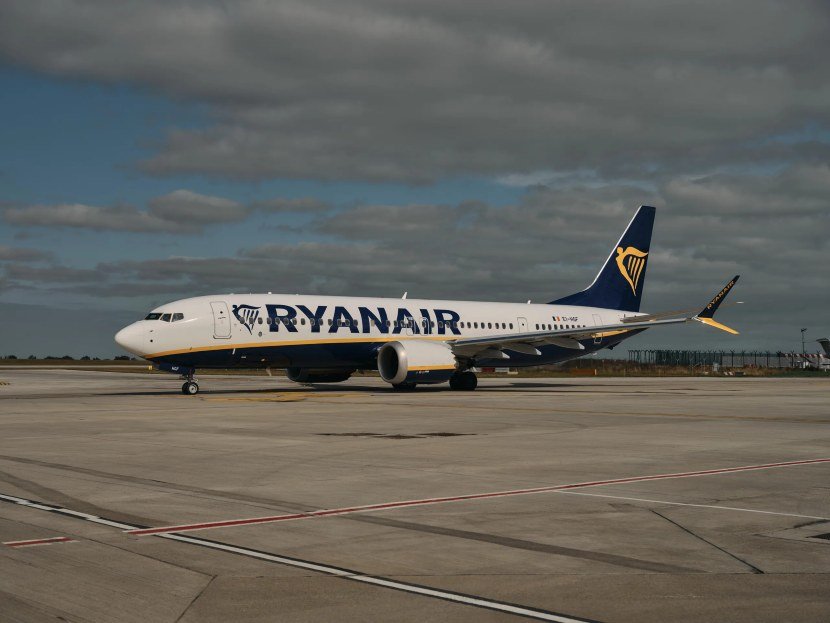
Wednesday, August 6, 2025
Travellers heading to and from Spain and also Seville, Valencia, Tenerife, Madrid South during the busy August holiday season might run into flight delays this year.
Ground staff from Azul Handling, an important provider for Ryanair, plan to strike for three days, from August 15 to August 17, 2025. The stoppage could disrupt hundreds of Ryanair flights at the country’s biggest airports.
Strike Details: A Threat to Spain’s Tourism Industry
Azul Handling provides essential ground services such as baggage handling, aircraft refueling, and boarding management for Ryanair at several key Spanish airports. The strike, called by the UGT union with backing from CGT, is expected to cause major disruptions at airports across Spain, particularly during peak travel times. The affected airports include Madrid, Barcelona, Malaga, Alicante, Seville, Valencia, Palma de Mallorca, and Tenerife South.
The work stoppages are planned for three peak travel windows each day:
- 05:00–09:00
- 12:00–15:00
- 21:00–23:59
This disruption comes at a crucial time for Spain’s tourism industry, with the August holiday period being one of the busiest for international travel. Tourists and locals alike will be impacted by the expected delays and cancellations, potentially affecting vacations and tourism experiences.
Impact on Ryanair Flights and Passenger Experience
Ryanair has acknowledged the strike but reassured passengers that it does not anticipate significant delays. However, the airline’s statement highlights that ground services are essential for the smooth operation of flights. The strike may lead to delays in baggage handling, aircraft refueling, and passenger boarding, which could have cascading effects on Ryanair’s flight schedule.
Tourists planning to travel during this period are encouraged to monitor their flight status closely and prepare for potential disruptions. Though Ryanair claims minimal impact, passengers should anticipate longer wait times and possible changes to flight schedules.
Compensation Rights for Affected Passengers
Passengers affected by flight delays or cancellations may be entitled to compensation under EU Regulation 261/2004. The regulation grants compensation for delays exceeding three hours or cancellations unless the disruption is due to “extraordinary circumstances.”
The key question regarding this strike revolves around whether it qualifies as an “extraordinary circumstance.” Previous rulings by the European Court of Justice suggest that strikes by subcontracted staff, such as those employed by Azul Handling, may not necessarily exempt airlines from compensating passengers. If the strike leads to significant disruption, Ryanair passengers may be eligible for compensation, depending on the specific circumstances of their delay or cancellation.
What Tourists Should Do to Minimize Disruption
Tourists travelling to Spain during the strike period should take proactive steps to minimise the impact of any disruption. Here are a few key recommendations:
- Check Flight Status: Always check the status of your Ryanair flight on the airline’s website or mobile app before arriving at the airport.
- Arrive Early: Given the potential for delays, arriving early will ensure you have ample time for any unexpected changes.
- Prepare for Alternative Plans: If your flight is delayed or cancelled, explore alternative routes or departure times with Ryanair or other airlines.
- Know Your Compensation Rights: Familiarise yourself with your rights under EU Regulation 261/2004 to ensure you claim compensation if necessary.
Looking Ahead: The Long-Term Impact on Spanish Tourism
If strikes go ahead and delays pile up, Spain’s tourism sector could feel the heat. Summer is peak travel time, especially for visitors from the UK and across Europe, and serious hold-ups can lead to unhappy travelers. That wave of complaints can linger and harm Spain’s image as the first choice for a getaway. To keep visitor trust, the Spanish government and tourism agencies might have to jump in with extra services or public messages to ready travelers and ease any panic.
Tourism is the backbone of the Spanish economy, and a choke in flights by Ryanair, which serves many key routes, won’t stop with the airlines. Hotels, restaurants, and shops in tourist areas depend on the arriving traffic, so a messy travel schedule can ripple out, squeezing local incomes. Smooth flights, then, are not just about planes in the sky; they’re about keeping the whole tourism chain and Spain’s economy sky-high.
Image credit- Ryanair
Flight Buzz
Ryanair Flights at Risk as Spain Ground Staff Strike Looms

The strike, called by the UGT union with support from CGT, will impact all Azul Handling bases, including major airports such as Madrid, Barcelona, Málaga, Alicante, Seville, Valencia, Palma de Mallorca, and Tenerife South. Work stoppages are planned in three peak travel windows each day:
-
05:00–09:00
-
12:00–15:00
-
21:00–23:59
If no agreement is reached during Wednesday’s mediation meeting at SIMA, the union warns that strikes will continue every Wednesday, Friday, Saturday, and Sunday until December 31, 2025.
Will your flight be affected?
Ryanair has stated that it does not expect major disruptions, but ground services are crucial for normal operations. Without staff to load baggage, refuel aircraft, and manage boarding, delays and cancellations remain possible. Passengers are advised to check flight status in advance and prepare for potential changes.
Are you entitled to compensation?
In many cases, yes. Under EU Regulation 261/2004, passengers can claim compensation for delays or cancellations. However, eligibility depends on whether the strike is considered an “extraordinary circumstance.”
The European Court of Justice has previously ruled that strikes by subcontracted staff, such as Azul Handling, do not always exempt airlines from paying compensation, since they are not entirely beyond the airline’s control.
For Ryanair passengers, this means that claims for compensation may be valid if the strike causes significant disruption.
-

 Brand Stories2 weeks ago
Brand Stories2 weeks agoBloom Hotels: A Modern Vision of Hospitality Redefining Travel
-

 Brand Stories2 weeks ago
Brand Stories2 weeks agoCheQin.ai sets a new standard for hotel booking with its AI capabilities: empowering travellers to bargain, choose the best, and book with clarity.
-

 Destinations & Things To Do2 weeks ago
Destinations & Things To Do2 weeks agoUntouched Destinations: Stunning Hidden Gems You Must Visit
-

 Destinations & Things To Do2 weeks ago
Destinations & Things To Do2 weeks agoThis Hidden Beach in India Glows at Night-But Only in One Secret Season
-

 AI in Travel2 weeks ago
AI in Travel2 weeks agoAI Travel Revolution: Must-Have Guide to the Best Experience
-

 Brand Stories1 month ago
Brand Stories1 month agoVoice AI Startup ElevenLabs Plans to Add Hubs Around the World
-

 Brand Stories4 weeks ago
Brand Stories4 weeks agoHow Elon Musk’s rogue Grok chatbot became a cautionary AI tale
-

 Brand Stories2 weeks ago
Brand Stories2 weeks agoContactless Hospitality: Why Remote Management Technology Is Key to Seamless Guest Experiences
-

 Asia Travel Pulse1 month ago
Asia Travel Pulse1 month agoLooking For Adventure In Asia? Here Are 7 Epic Destinations You Need To Experience At Least Once – Zee News
-

 AI in Travel1 month ago
AI in Travel1 month ago‘Will AI take my job?’ A trip to a Beijing fortune-telling bar to see what lies ahead | China





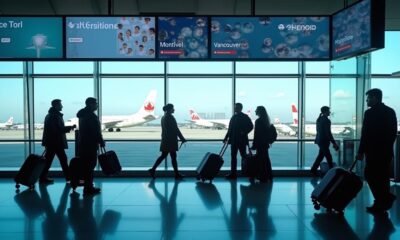

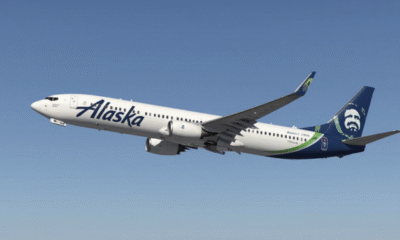





You must be logged in to post a comment Login